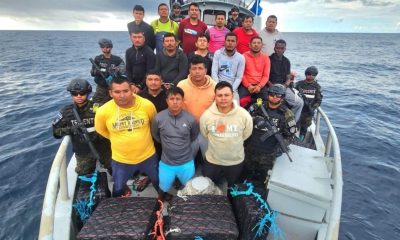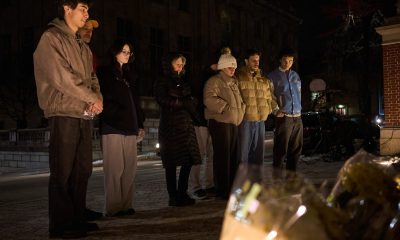Amérique centrale
Nicaragua’s political crisis: families and detainees suffer amid prolonged enforced disappearances

The Nicaraguan regime, led by Daniel Ortega and Rosario Murillo, has been carrying out a systematic practice of enforced disappearances since April 2018, amid the country’s ongoing political and social crisis, according to a report released on Friday by human rights organizations.
The document was prepared by the Legal Defense, Race, and Equality Unit, the Autonomous Women’s Movement of Nicaragua, the Mesoamerican Initiative of Women Human Rights Defenders, and the Nunca Más Human Rights Collective. As an example, the report cites the death of political prisoner Mauricio Alonso Petri, who was detained on July 17 and whose body was handed over to his family 38 days later at the Managua Institute of Legal Medicine.
Published ahead of the International Day of the Victims of Enforced Disappearances, the study highlights that this repressive mechanism affects not only the detainees but also their families, who face harassment, uncertainty, and official silence.
According to the Inter-American Commission on Human Rights (IACHR), more than 2,000 political detentions over the past seven years have been linked to enforced disappearances. Victims are transferred to clandestine centers, subjected to physical and psychological torture, and denied contact with family members and lawyers. The report notes that since 2023, these disappearances have shifted from lasting a few days to prolonged disappearances, facilitated by the opacity of the judicial system.
The UN Human Rights Experts Group concluded that these practices are part of a “criminal plan” by the Ortega-Murillo regime to neutralize dissent. The report further warns that women, adolescents, indigenous leaders, elderly people, and citizens with chronic illnesses are particularly affected.
Female political prisoners have reported sexual violence and gender-based torture, while adolescents subjected to prolonged isolation have developed suicidal tendencies. The study also emphasizes the impact on family members searching for the disappeared, mostly women, who face harassment, high economic costs, and severe emotional distress.

-

 Central America4 days ago
Central America4 days agoPanama seizes over three tons of drugs hidden in Caribbean port container
-

 International4 days ago
International4 days agoPolice investigate deaths of Rob Reiner and wife as apparent homicide
-

 Central America4 days ago
Central America4 days agoOAS urges swift recount in Honduras as election results remain uncertain
-

 Central America3 days ago
Central America3 days agoEl Salvador ranks among top countries in the Americas in fight against organized crime
-

 Central America3 days ago
Central America3 days agoBukele says AI partnership with xAI will transform public education in El Salvador
-

 International2 days ago
International2 days agoRubio rules out 2028 presidential bid if Vance runs
-

 Central America2 days ago
Central America2 days agoArrests and clashes in Tegucigalpa as vote count continues after Honduras election
-

 International2 days ago
International2 days agoAuthorities search for armed and dangerous suspect in fatal Brown University attack

























